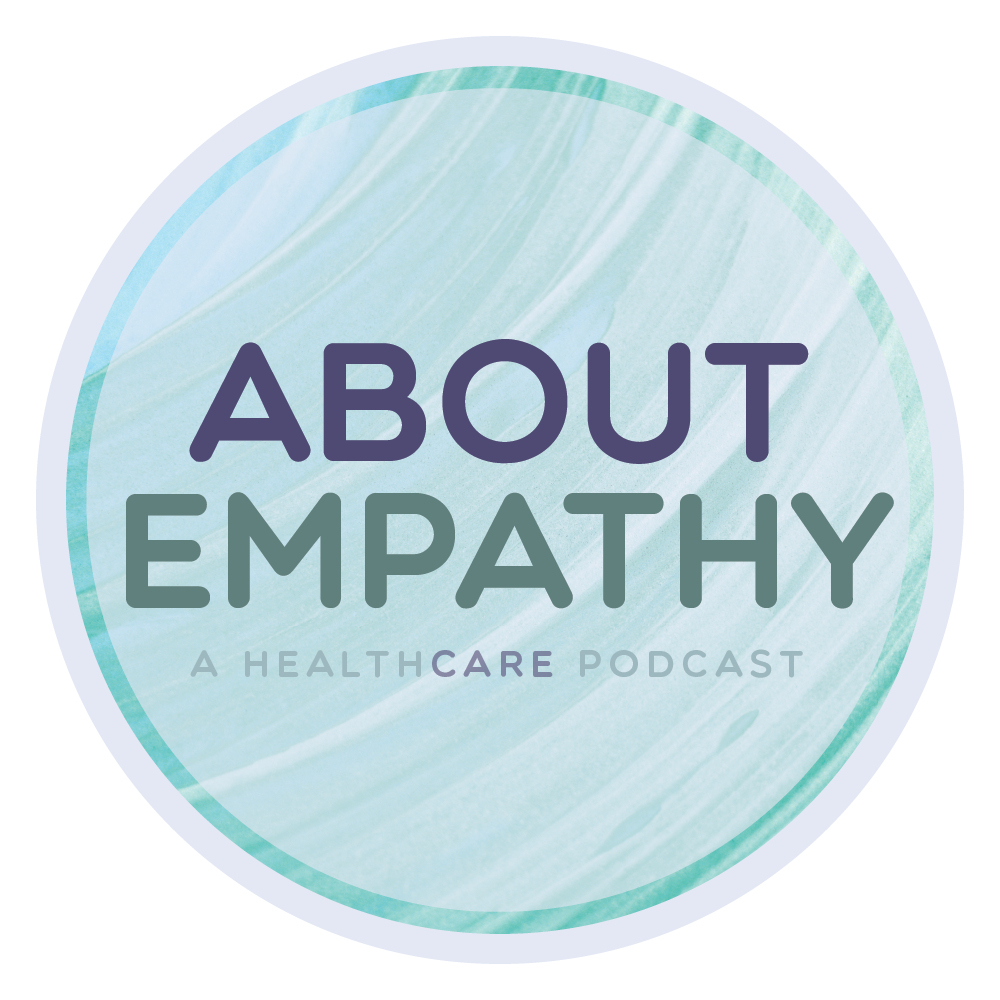Dr. Maxxine Rattner is a hospice/palliative care clinician and educator who recently completed her PhD on the topic of non-physical suffering. In this episode, we discuss the challenges in addressing non-physical suffering and the importance of making space within palliative care to do this intrinsically difficult work and approach the work without the expectation of “fixing” suffering.
Season 5 Episode 5: Cultural humility in healthcare - Dr Zhimeng Jia
Dr. Zhimeng Jia is a palliative care physician at the Temmy Latner Centre for Palliative Care in Toronto. Through a combination of personal and clinical experiences, Dr. Jia developed an interest in health inequities that Asian immigrants experience at the end-of-life. In this episode, he shares the lessons he has learned in providing culturally aware care to patients and their families.
Season 5 Episode 4: Wrap Around Support: Caring for the Seriously Ill Child - Dr Dave Lysecki
Dr. David Lysecki is the Founder and Medical Director of the Quality of Life & Advanced Care Program at McMaster Children's Hospital. In this episode, Dr. Lysecki discusses his experience working in pediatric palliative care, and how he navigates both the rewards and challenges of working in this area. We also discuss how we can ensure that palliative care and pediatric palliative care become the work of all health care providers.
Season 4 Episode 4: Person-Centered Care Pearls: A Conversation with Dr. Harvey Chochinov (Part 2)
Dr. Harvey Max Chochinov is a psychiatrist well known in the field of palliative care especially around his work in dignity. In this 2 part episode, we chat about the importance of compassionate and dignity conserving care. He provides the learners with many pearls on how to bring this important and essential style of care to the bedside through our discussion of the dignity question, the platinum rule and his other work and research in this area.
Season 4 Episode 3: Person-Centered Care Pearls: A Conversation with Dr. Harvey Chochinov (Part 1)
Dr. Harvey Max Chochinov is a psychiatrist well known in the field of palliative care especially around his work in dignity. In this 2 part episode, we chat about the importance of compassionate and dignity conserving care. He provides the learners with many pearls on how to bring this important and essential style of care to the bedside through our discussion of the dignity question, the platinum rule and his other work and research in this area.
Season 3 Episode 8: Spiritual Care Support
Kiersty Hong is a spiritual care practitioner at Sunnybrook. She often finds herself clarifying the role she plays on the health care team to other hospital staff and patients. Kiersty provides emotional support to any patient – regardless of their faith community or agnostic or atheist beliefs. Kiersty is here to tell us more about her work, so we can better make spiritual care a part of the interprofessional healthcare team.
Season 3 Episode 7: Advanced Care Planning
Advance care planning is a process by which individuals express their healthcare preferences, values and priorities for the future. Through Advance Care Planning, individuals may identify a legally appointed Substitute decision maker. A substitute decision maker, or SDM, acts on behalf of someone when they are no longer able to make decisions for themselves. The SDMs role is to make decisions that are aligned with that individual’s previously expressed wishes. In Ontario, when a patient legally appoints a SDM this is called a Power of Attorney for personal care.
Even when an Advance Care Plan is in place, Dr Maria Muraca learned that unforeseen circumstances can come up. Maria was the Power of Attorney for her father, Michele, who died one year ago of idiopathic pulmonary fibrosis. Maria is a family physician, as well as an advocate and teacher of advance care planning. She is here to tell us about her personal experience with her father’s changing advance care plan and how that has shaped her discussions with patients and health care workers.
Season 3 Episode 5: Gun Control Advocacy
In her 20 years of experience as a trauma surgeon, Dr Najma Ahmed has seen an increasing number of gun violence incidents. The organization she co-founded, Canadian Doctors for Protection from Gun Violence, is centering gun violence as a public health issue. The organization’s work in research and policy has helped to pass laws increasing background checks for the transfer and sale of firearms, along with establishing an assault rifle ban. For her advocacy work, Dr. Ahmed has been awarded the 2020 Sir Charles Tupper Award for Political Advocacy from the Canadian Medical Association.
Season 3 Episode 3: Physician Wellness & Trauma in COVID-19
Dr Janet Ellis is a medical psychiatrist who has extensively studied physician trauma and promoted physician wellness. From the onset of the COVID-19 pandemic, Janet committed to supporting other health care professionals – instituting mental health screening protocols, offering psychosocial support and collecting research data. She is here to share her insights with us today – how the landscape is evolving and how we can care for ourselves and our colleagues.
Season 3 Episode 2: Combating Systemic Racism in Health Care
Over the last year, the impact of systemic racism in healthcare has come into sharper focus. From racialized populations being disproportionately impacted by COVID-19, to the cruel and senseless death of Joyce Echaquan in a Quebec hospital, it is more important than ever to look inwards at our own racial biases and at the widespread inequity that exists in the health care system.
Dr Lisa Richardson is the Strategic Lead in Indigenous Health at Women’s College Hospital and the Faculty of Medicine, University of Toronto. Dr. Richardson is also the Vice-Chair, Culture & Inclusion at the Department of Medicine. She is working to advance inclusion, equity and wellness through her work with students, faculty and staff across U of T.
Indigenous Cultural Safety Training Program https://www.sanyas.ca
Indigenous Health Primer from the Royal College of Physicians and Surgeons of Canada https://www.royalcollege.ca/rcsite/documents/health-policy/indigenous-health-primer-e.pdf
Harvard Implicit Bias Test https://implicit.harvard.edu/implicit/user/agg/blindspot/indexrk.htm






